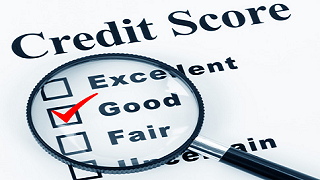
As the Vancouver housing market gets hotter, qualifying for mortgages is actually getting tighter. When planning to buy a house, condo, or townhouse on the west side or east side of Vancouver, you should first find out your personal credit score since it will affect both your mortgage interest rate and your ability to get financing.
If you are not sure if your credit history will qualify you for financing and the best interest rates, you are not alone. It’s more common than you may think for home buyers to have credit-skeletons in their closets and not even know it. Whenever you apply for credit, or miss a single payment, or have a justifiable dispute over a bill, your credit standing is affected.
For example, we recently worked with a physician who ran his own clinic and didn’t realize that he had some issues with last year’s tax return. It wasn’t until he made an offer on a property in False Creek subject to financing that he found out he had a problem, which took a few months to resolve (through the help of a creative financial advisor that our real estate team recommended).
Before buying a home in Vancouver, it’s always a good idea to get pre-approved by a financial institution and to know your own credit score. A score of 750+ is great, 700 is good, 680 is borderline, 650 is absolute minimum. A stronger credit score will help you get a better mortgage interest rate from your financial institution. You can get your credit score from a number of sources. Either ask your financial institution (they will get your score from the Credit Bureau when you apply for a mortgage) or reach out directly to a credit score website, such as EQUIFAX.CA, that often has one month free trials available.
In another example, we worked with first time buyers in Kitsilano who had been pre-approved a year earlier. Since then, they had been growing their down payment and felt confident that their financial situation was even stronger than a year ago when they were first pre-approved, but in fact their credit scores had gone down due to some missed bill payments and they were turned down for a mortgage. The bank said that they would be probably been approved several years ago but they are now “cracking down” on poor credit scores.
Here are some tips to help improve credit scores:
- Always pay bills on time, including all utility bills, credit cards, car loans, and student loan payments, etc. Setup your bills to automatically come out of your bank account so you never miss a payment.
- Limit the number of new loan applications that you fill out (e.g. credit cards, store cards, gas cards, car loans, etc.) because your score goes down every time anybody runs a credit check on you.
- Don’t’ change credit card companies frequently because your score goes up for having a long-term credit card and your score goes down when you apply for a different one.
- Don’t use your credit instruments (credit cards, lines of credit, etc.) to their maximum because your score goes up when you have unused credit “space” and your score goes down when you run balances close to the credit limit. I know this sounds funny but it’s true – the bureau wants you to have credit but not use it. For example, if you have a credit card, keep your running balance considerably lower than the card’s credit limit, and pay off the entire balance every month.
As seasoned Vancouver realtors, our team has worked with house buyers of all ages and in all walks of life who ran into credit issues. Our network of creative financial specialists has been able to help them work through their challenges. If you are in the market to buy a home in Vancouver, feel free to contact our team for guidance through the process of checking your credit score and becoming credit worthy.
*Written by Annette Saliken, YourHomeTeam with Sutton Westcoast Realty – 2015




















